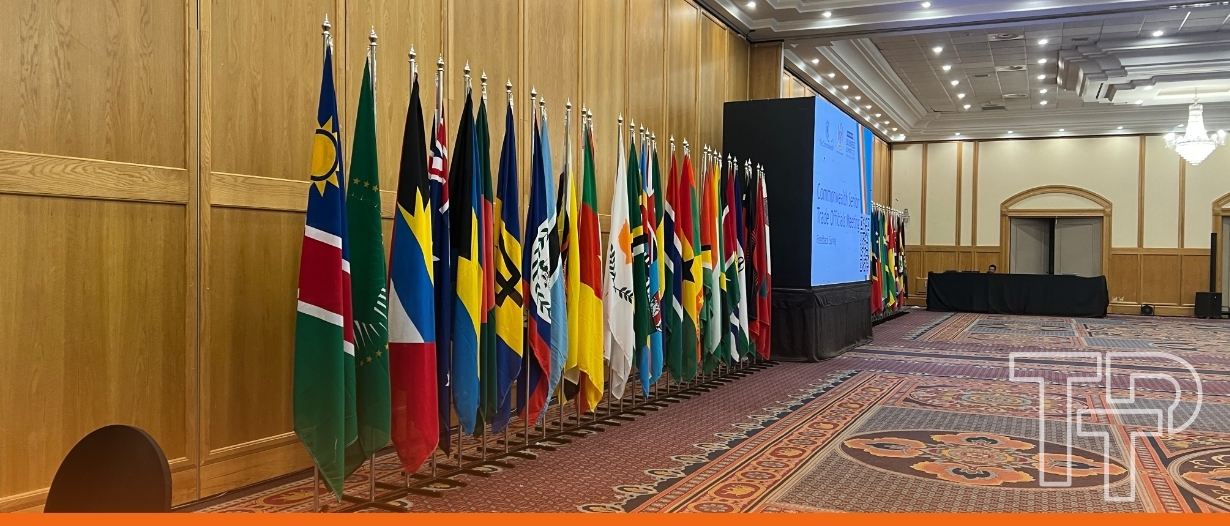Credit rating and restructuring disputes expose misalignment on Africa debt risks
Bilal Bassiouni
Jun 12, 2025
 Deepesh Patel
Jun 16, 2025
Deepesh Patel
Jun 16, 2025

As geopolitical tensions, protectionism, and supply chain shocks buffet global trade, a historic milestone is unfolding in Windhoek. For the first time in the Commonwealth’s history, the Commonwealth Trade Ministers Meeting and the Commonwealth Business Summit are being held outside London and on African soil.
Namibia, the host nation, is stepping into a pivotal diplomatic role, bringing together over 300 delegates from all 56 Commonwealth member countries.
The week-long programme from 16 to 20 June 2025 includes a series of ministerial and business engagements focused on resetting trade relationships for a more inclusive, sustainable and digitally enabled future.
Co-hosted by the Government of the Republic of Namibia and the Commonwealth Secretariat, the summit has adopted the theme of fostering resilience and strengthening intra-Commonwealth trade and investment linkages.
The meetings will include government ministers, CEOs, investors, and innovators from five continents, aiming to move beyond rhetoric and into practical action.
The convening comes as the world contends with fragmented global supply chains, rising tariffs, growing concerns around debt, food and energy security, and digital exclusion.
These disruptions are existential for small states, least developed countries and island nations.
In her first trade ministerial since taking office in April, Commonwealth Secretary-General Shirley Ayorkor Botchwey emphasised that the event is about fixing trade and future-proofing economies. “These meetings are not just about dialogue; they are about delivery. Across the Commonwealth, we are working together to build a trade system that works for all, creating real opportunities for women striving to grow their businesses, young people seeking decent jobs, and communities working to overcome economic hardship.”
Botchwey also pointed to the Commonwealth’s inherent economic advantage.
On average, bilateral trade costs between Commonwealth countries are 21 per cent lower than with non-members, and Commonwealth countries trade 20 per cent more.
This advantage stems from a shared language, standard legal systems, familiar administrative practices, and large, interconnected diasporas that help reduce communication and transaction costs.
Against this backdrop, the value of intra-Commonwealth trade reached a record high of 854 billion dollars in 2022, with developing countries contributing 72 per cent of that total.
Services trade has skyrocketed, particularly in digitally deliverable sectors, which account for 65 per cent of Commonwealth services exports.
And yet, these figures mask persistent structural challenges, from overlapping regulatory standards and customs delays to limited diversification, rising debt and climate-driven volatility.
Namibia’s summit hosting is being hailed as a diplomatic and economic milestone for the country and the wider continent.
H.E. Selma Ashipala-Musavyi, Namibia’s Minister of International Relations and Trade and co-chair of the summit described it as a moment to showcase Namibia’s economic potential and readiness to lead on international partnership.
She noted that Namibia’s strategic location, mineral wealth, and commitment to reform made it a natural host, but Namibia’s values, fairness, trust, and cooperation made it the right one.
Speaking alongside her, Hon. Faleomavaega Titimaea Tafua, Samoa’s Minister of Commerce, Industry and Labour and current Commonwealth Chair-in-Office, underlined the importance of solidarity between small states, especially as they navigate overlapping economic, environmental and geopolitical pressures.
The message was echoed across the ministerial and business sessions, prioritising concrete trade facilitation measures, regulatory alignment, and investment in climate-resilient and digitally enabled infrastructure.
A key thread throughout the discussions has been the need to move up the value chain. Ministers and business leaders stressed the importance of adding value to Commonwealth assets, particularly critical minerals, by shifting from raw extraction to local processing, skills development and integration into high-value global supply chains.
Namibia, with its ambitious national strategy and over 70 critical mineral projects underway, emerged as a compelling case study of how developing countries can position themselves as reliable suppliers in a contested global economy.
Other focus areas include advancing food and energy security through regional trade, attracting blended finance for infrastructure, empowering women and youth entrepreneurs, and coordinating Commonwealth positions ahead of the WTO Ministerial Conference in Cameroon in 2026.
The summit also featured the first-ever Commonwealth Business Summit in partnership with the Namibia Investment Promotion Board and the Namibia Chamber of Commerce and Industry, creating a space for dialogue between public and private sectors on investment, innovation and sustainable growth.
Chris Southworth, Secretary General of the International Chamber of Commerce UK and co-chair of the Commonwealth Connectivity Agenda, said the meetings were a timely intervention to boost confidence in the multilateral system. “The Commonwealth Trade Ministers Meeting and Business Summit are an opportunity to stand up for the multilateral trading system when the system is under threat and boost business confidence by accelerating efforts to make trade cheaper, faster, simpler and more sustainable and inclusive for all.”
The Commonwealth represents a third of humanity with a combined population of 2.7 billion people, of which more than 60 per cent are under 30.
Yet its potential is far from fully realised. As the week in Windhoek has shown, translating shared history and values into meaningful economic integration requires more than declarations. It requires investment, trust and a willingness to rewrite the rules for a more resilient future.
The presence of ministers, investors and civil society leaders in Namibia this week is a testament to a shared commitment to that future. The real test will be whether the momentum built here can carry through to implementation. But one thing is already clear. By hosting this summit, Namibia has cemented itself on the map.

Bilal Bassiouni
Jun 12, 2025

Deepesh Patel
Jun 09, 2025
Trade Treasury Payments is the trading name of Trade & Transaction Finance Media Services Ltd (company number: 16228111), incorporated in England and Wales, at 34-35 Clarges St, London W1J 7EJ. TTP is registered as a Data Controller under the ICO: ZB882947. VAT Number: 485 4500 78.
© 2025 Trade Treasury Payments. All Rights Reserved.